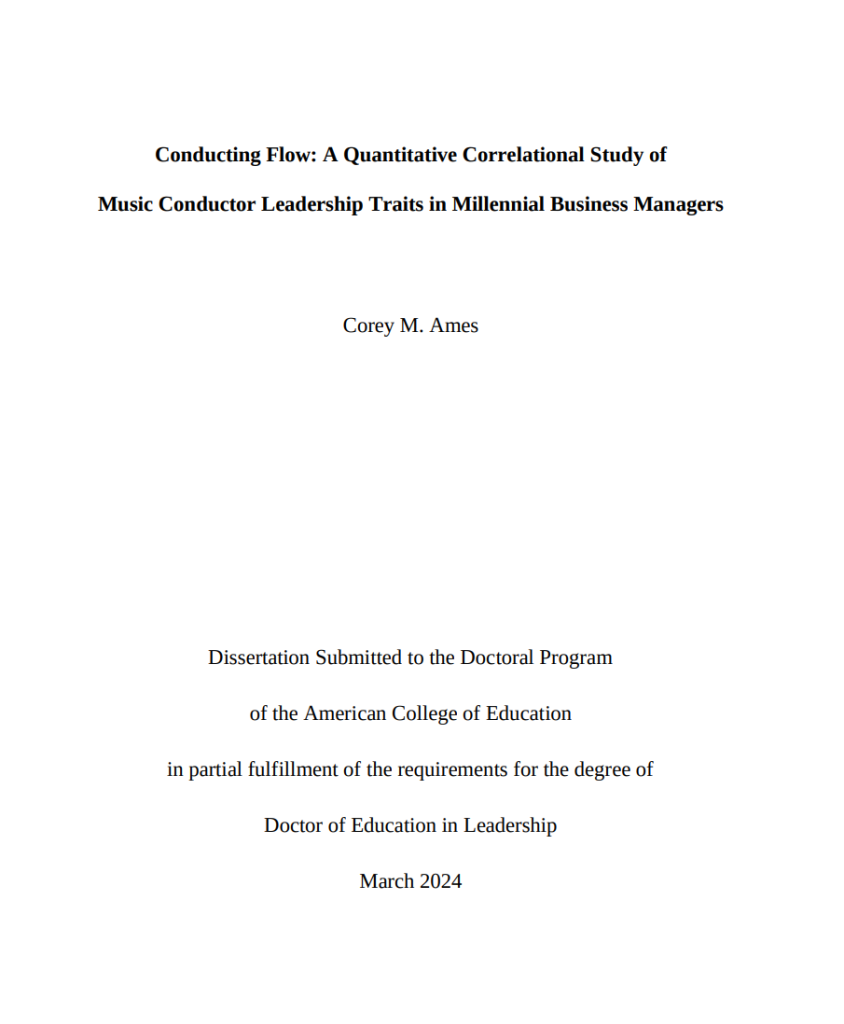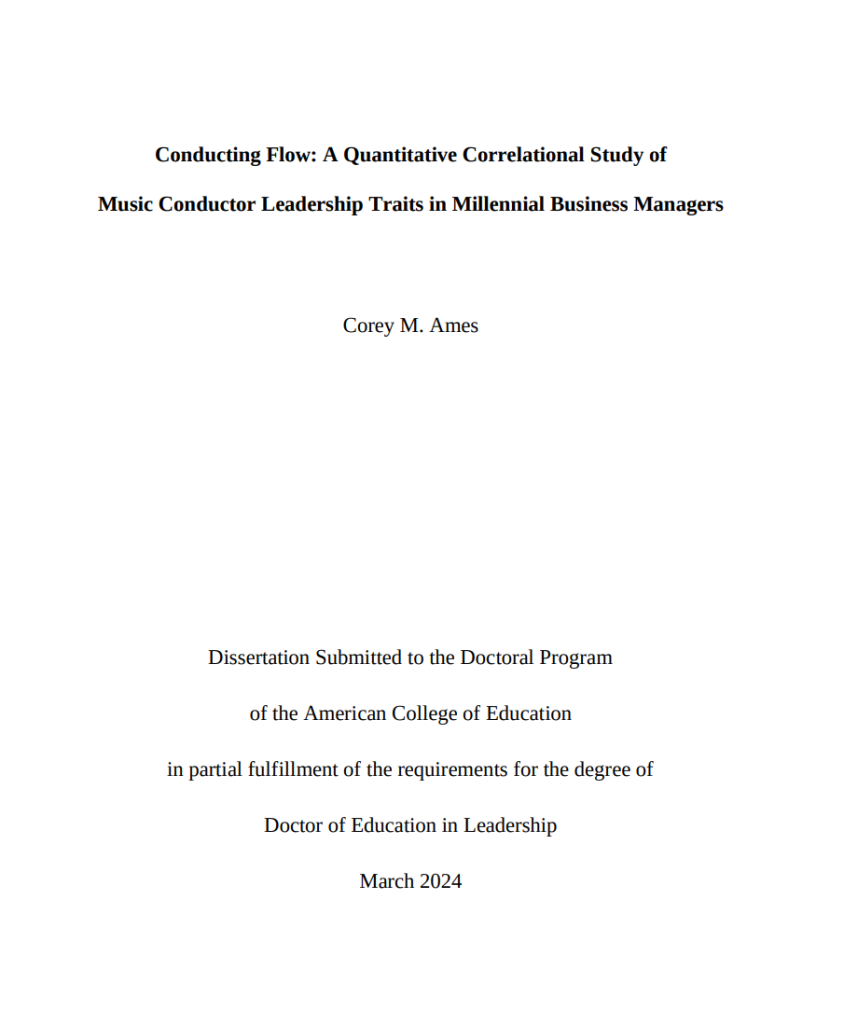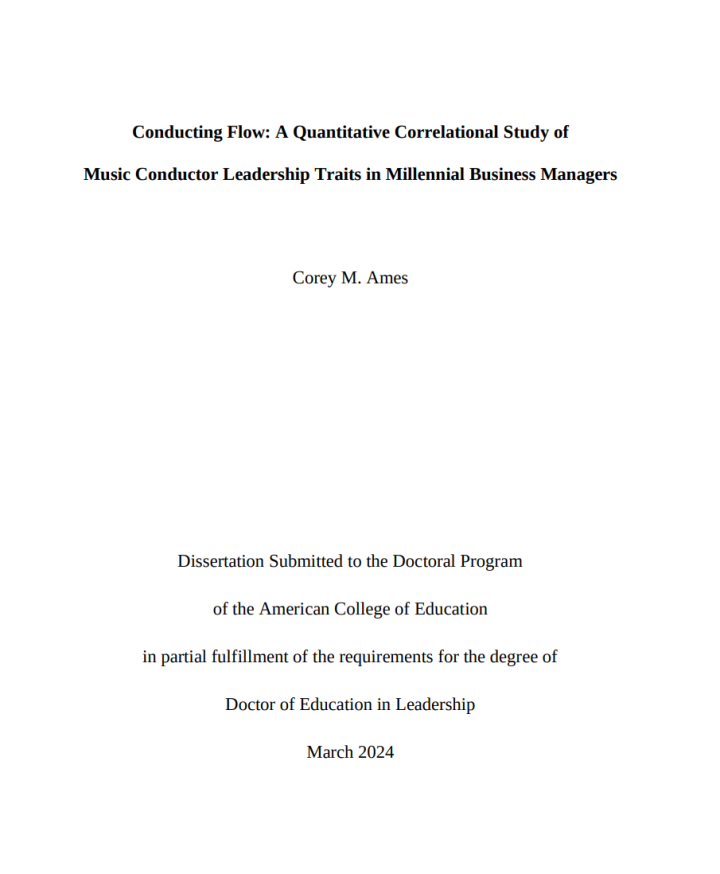
by: Corey Ames Ed.D.
Abstract
Individuals born between 1981 and 1996 are expected to be the dominant generation in the workforce by 2025. The problem is conventional leadership applications seem unrelated to the millennial generation’s need for workplace autonomy and adapting to volatile, uncertain, complex, and ambiguous conditions. There is a gap in information about group flow, its significance in organizational leadership, and linking conductor skills in the corporate world. The purpose of this quantitative correlational study was to investigate the relationship between music conductor-type leadership traits and corporate atmosphere in millennial business managers. Conductor-type leadership theory, which is based on ambidextrous and empowerment leadership, and flow leadership theory serve as the foundation for this study’s theoretical framework. Research questions were designed to investigate the relationships between the conductor-type leadership skills of active listening and time management, and corporate atmosphere. The sample consisted of 8,346 millennials who played the serious leadership game FLIGBY. Data were collected from ALEAS Simulations, the creators of FLIGBY and stratified for use in the study. Using SPSS for correlation analysis a moderately significant correlation was found between active listening and corporate atmosphere. A weak but significant correlation was found between time management and the corporate atmosphere. Principal component analysis was used to determine intercorrelations among variables sum of flow, active listening, and time management. An additional PCA was conducted and found a principal musician flow component. It is recommended that companies and organizations create standard training programs in flow leadership based on the study’s findings, interpretations, and conclusions.
Keywords
active listening, ambidextrous leadership, conductor-type leadership, empowerment leadership, flow leadership, flow state, millennials, time management

